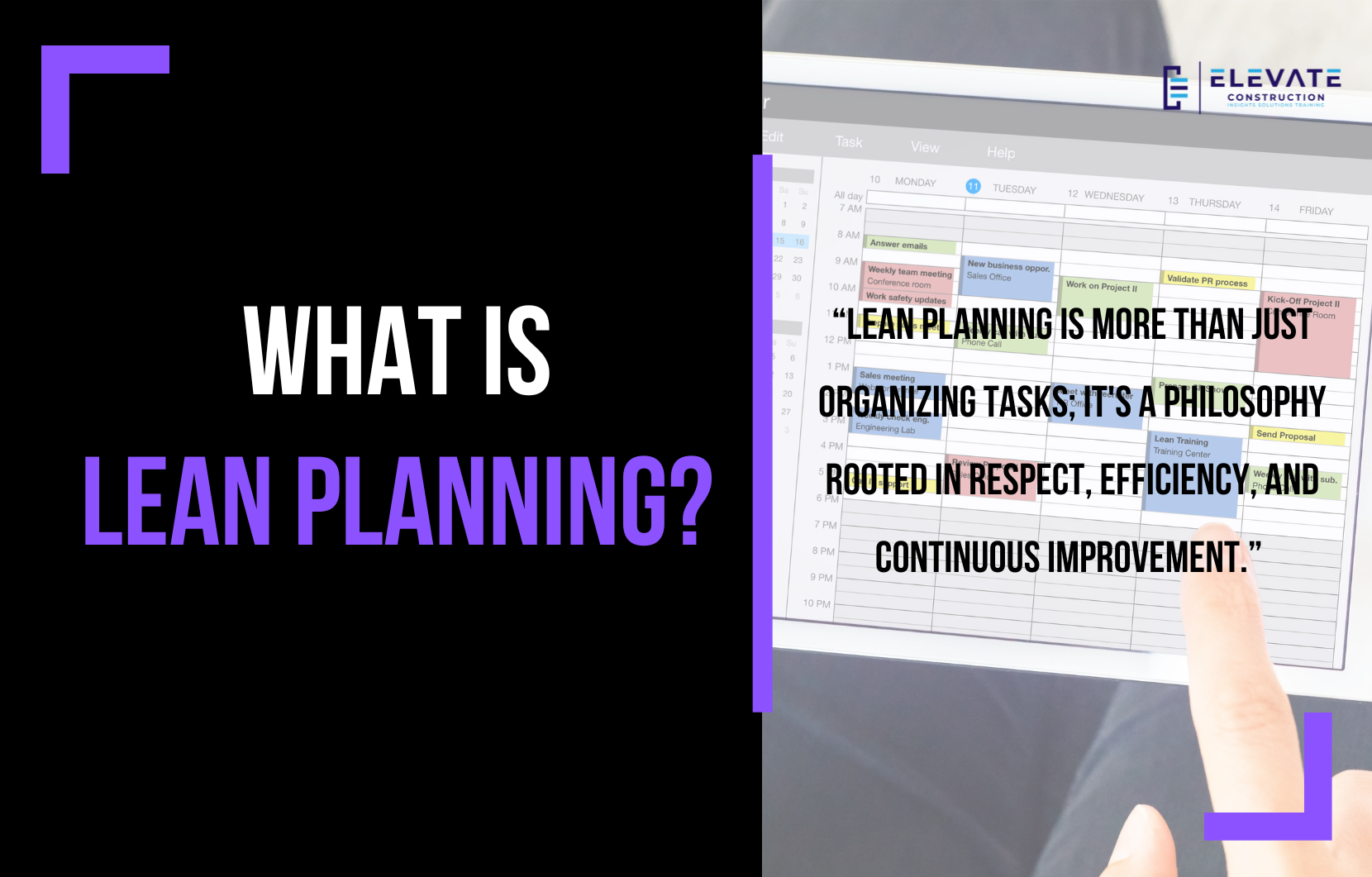Lean planning is more than just organizing tasks; it’s a philosophy rooted in respect, efficiency, and continuous improvement. In this comprehensive guide, we’ll explore the core principles of lean planning and how they can transform your approach to project management.
- Respect for People & Resources:
At the heart of lean planning lies a deep respect for both the individuals involved and the resources utilized. Ask yourself: Are your plans designed to prioritize the well-being and satisfaction of your team members? Do they optimize the use of resources while minimizing waste? Lean planning begins with valuing people and their contributions, fostering a culture of collaboration and mutual respect.
- Creating Stability & Flow:
Effective planning should aim to create stability and flow throughout the project lifecycle. Whether you’re using takt planning, CPM scheduling, or other methodologies, the goal remains the same: to streamline workflows, minimize disruptions, and optimize productivity. By identifying and addressing bottlenecks, you can ensure a smooth and efficient execution process, ultimately enhancing project outcomes.
- Total Participation Through Visual Systems:
Total participation is essential for the success of lean planning initiatives. Every member of the project team should be actively engaged and empowered to contribute to the planning process. Visual systems, such as pull planning boards or digital dashboards, can facilitate clear communication and alignment of objectives. Ensure that plans are communicated effectively to all stakeholders, from project managers to frontline workers, fostering a shared understanding and commitment to success.
- Quality & Continuous Improvement Based on Customer Needs:
Quality and continuous improvement are non-negotiable aspects of lean planning. Does your planning process prioritize meeting customer needs and expectations? Are clear standards and expectations communicated to all team members? Lean planning encourages a proactive approach to quality management, empowering individuals to identify areas for improvement and implement solutions collaboratively. By continuously refining processes and delivering value to customers, lean organizations can stay ahead of the curve in a competitive market.
Why Lean Planning Matters:
In an industry where efficiency and effectiveness are paramount, lean planning offers a path to sustainable success. By embracing principles of respect, stability, participation, and continuous improvement, organizations can unlock their full potential and deliver exceptional results. Whether you’re a seasoned project manager or new to lean methodologies, adopting a lean approach to planning can drive meaningful change and drive project success.
Conclusion:
Lean planning isn’t just about ticking boxes on a checklist; it’s a mindset—a commitment to excellence and continuous improvement. As you embark on your lean planning journey, remember to keep the principles of respect, stability, participation, and quality at the forefront of your efforts. By doing so, you’ll not only optimize project outcomes but also cultivate a culture of innovation and collaboration that sets your organization apart. Let’s plan lean and pave the way for a brighter future in construction management.
If you want to learn more we have:
-Takt Virtual Training: (Click here)
-Check out our Youtube channel for more info: (Click here)
-Listen to the Elevate Construction podcast: (Click here)
-Check out our training programs and certifications: (Click here)
-The Takt Book: (Click here)
Discover Jason’s Expertise:
Meet Jason Schroeder, the driving force behind Elevate Construction IST. As the company’s owner and principal consultant, he’s dedicated to taking construction to new heights. With a wealth of industry experience, he’s crafted the Field Engineer Boot Camp and Superintendent Boot Camp – intensive training programs engineered to cultivate top-tier leaders capable of steering their teams towards success. Jason’s vision? To expand his training initiatives across the nation, empowering construction firms to soar to unprecedented levels of excellence.
On we go!


